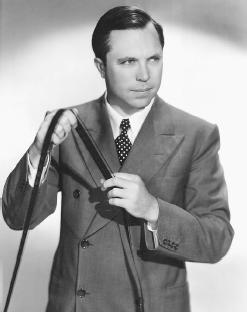1894-1982
King Wallis Vidor was born in Galveston, Texas, the son of a prosperous lumber merchant of Hungarian descent. Movie crazy from boyhood - his first job was as a ticket-taker and projectionist at Galveston's only nickelodeon - he bought a camera at age 18 and starting shooting local events to sell to regional newsreels. In 1915 he married aspiring actress Florence Vidor and the couple headed for Hollywood. While Florence quickly became a popular screen idol Vidor had a rougher go of it, working odd jobs at Universal before making his feature directing debut with "The Turn in the Road" (1919). From 1920 to 1923 he had his own little studio, Vidor Village, where he wrote, produced, and directed such modest features as "The Jack-Knife Man" (1920) and "The Sky Pilot" (1921), many of them starring his wife. Both his studio and his marriage collapsed around the same time and in 1924 he found himself single and on staff at the newly-formed MGM. There he made his first outstanding film, "The Big Parade" (1925). A lyrical love story set amidst the horror of World War I, it was the biggest box-office hit of the 1920s and brought Vidor international fame. Following this he displayed his versatility with the operatic melodrama "La Boheme" (1926), the swashbuckler "Bardleys the Magnificent" (1926), and the classic Tinseltown satire "Show People" (1928). But these were merely the dues he paid in order to make "The Crowd", long regarded as one of the supreme masterpieces of the silent cinema. Employing camerawork of unprecedented freedom, Vidor charted the ups and (mostly) downs of an ordinary young couple striving to get ahead in the big city, but who ultimately fade into the faceless multitude. It starred a then-unknown bit player, James Murray, and the director's second wife, Eleanor Boardman (they were married from 1926 to 1931). Vidor entered talkies in top form with the all-black melodrama "Hallelujah!", the early widescreen western "Billy the Kid" (1930), and particularly "Street Scene" (1931), in which he used a "fly-on-the-wall" camera technique to lift the story almost clear of its stage play origins; but he never quite recaptured the sheer virtuosity of his earlier work. After the failure of his independently-produced "Our Daily Bread" (1934), which offered the notion of collective farms as a solution to Depression-era woes, Vidor devoted himself to making the most out of studio assignments. The greatest successes of his commercial period were "The Citadel" and the sexy western epic "Duel in the Sun" (1946). His other noteworthy films include "Bird of Paradise" (1932), "Stella Dallas" (1937), "Northwest Passage" (1940), "The Fountainhead" (1949), "Beyond the Forest" (1949), "Ruby Gentry" (1952), and "Man Without a Star" (1955). He also directed, without credit, the Kansas scenes of "The Wizard of Oz" (1939), taking over for Victor Fleming. Unable to get another major project off the ground after his expensive Biblical flop "Solomon and Sheba" (1959), Vidor turned to small-scale documentaries, the last of which, "The Metaphor", was completed in 1980. He lectured widely, taught a graduate class at UCLA, and appeared as an actor in Robert Altman's "A Wedding" (1978). He also wrote two books: "A Tree Is a Tree" (1952), an autobiography, and "King Vidor on Filmaking" (1972). In 1979 Vidor was awarded an Honorary Oscar for Lifetime Achievement and later that year flew to Moscow to attend a festival of his work. His third and last marriage, to screenwriter Elizabeth Hill, lasted from 1932 until his death at 88. In his best-selling book "A Cast of Killers" (1986), author Sidney D. Kirkpatrick asserted that in 1967 Vidor not only investigated but solved the notorious 1922 murder of director William Desmond Taylor.
Vidor with Audrey Hepburn in 1979





 Reply With Quote
Reply With Quote

